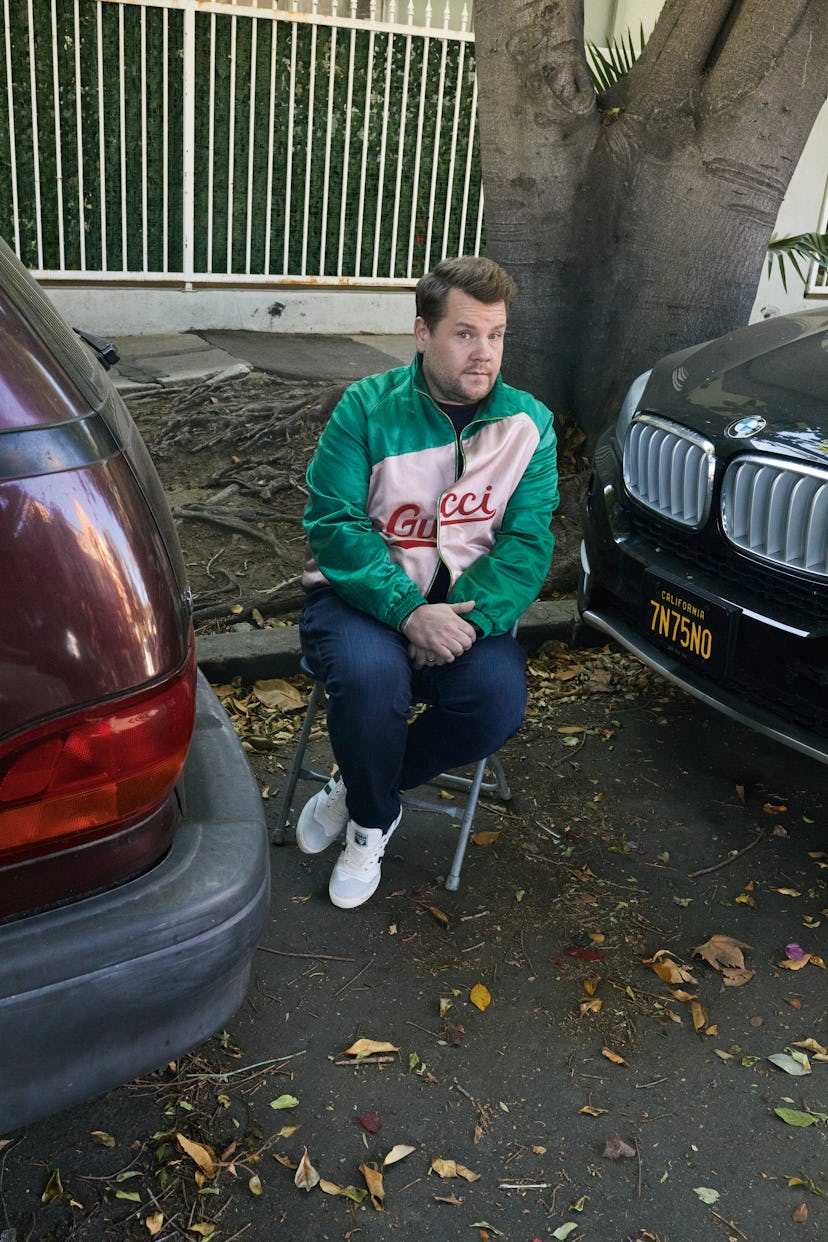When James Corden signed on to Ryan Murphy’s The Prom, it was the culmination of his decades steeped in musical theater. “My first job was a musical in the West End when I was 17,” the Late Late Show host, now 42, says. “It was called Martin Guerre, which was a disaster, but it was an amazing time in my life.” He channeled the camaraderie of days spent in an ensemble to play washed-up Broadway star Barry Glickman, who, along with his similarly fading theater friends (played by Nicole Kidman, Meryl Streep, and Andrew Rannells), attempts to reclaim the spotlight by saving a small town from the scourge of homophobia. While Corden, who is straight, has faced online criticism for his portrayal of a gay character, the Hollywood Foreign Press Association disagreed, nominating him for the Golden Globe for Best Actor in a Motion Picture – Musical/Comedy. In our annual Best Performances issue, the father of three talks about his initial reluctance to take the role, his relationship with 1D, and his early forays into forming a boy band of his own.
How did your involvement with The Prom come about?
Ryan Murphy had seen The Prom on Broadway, felt incredibly moved by it, and set about trying to make a film of it. He contacted Meryl Streep about playing Dee Dee. He contacted Nicole Kidman. And then he contacted me. I actually didn't say yes right away. I said, "This is incredible." I went to see the show, was blown away by Brooks Ashmanskas's performance as Barry, and had long conversations with Ryan about whether I was capable of doing such a role—and should I do this? He made it clear that he wanted me to do it, and that was it, really. As soon as I said yes, I thought, Well, this is going to be a blast, and it was.
Did you consider keeping your English accent for it?
The character needed to have an American accent, simply because proms don’t exist in the United Kingdom. [Barry is a theater actor who never went to his own prom.] I’m very, very grateful that we didn’t have proms in England, because I can only imagine me being at school and asking people if they would go to prom with me. There would have been a litany of rejection.
As a kid growing up, did you have any daydreams about living in America?
Oh, yes. America's influence is massive if you're growing up in Britain. I hadn't been to New York until we got off the plane to do The History Boys on Broadway. I was maybe 26. The first time I set foot on a subway in Manhattan, I felt like I’d been here before. For me, America has always been a place of absolute optimism, hope, and joy, a place where anything is possible. These last few years, it’s been strange watching that feeling change slightly. But I still feel it’s a privilege every day that I wake up here.
You started your career doing musicals in London, and now you have Carpool Karaoke. Were you always singing when you were younger?
Yes, I was rarely not singing. It was actually a conversation I had to have with my wife quite early in our relationship, when we were in the car with the radio on. She looked at me and was like, "Stop adding harmonies to these songs where they don't need to be added." I wish I'd had the foresight to tell her that this will come in very useful for us down the line.
What was the first album that you remember buying?
I remember the first single I bought was “Poison,” by Bell Biv DeVoe. I bought two cassettes on the same day. I bought “Poison” and a song called “Song for Whoever,” by the Beautiful South, which is quite an eclectic range.
You seem to know a lot about boy bands—where does that fascination come from?
Boy bands, for me, are sort of an unfulfilled dream. Anything I've done in my career, I would happily swap to have been in a successful ’90s boy band. Or even a mediocre [one]. I would have taken two Top 3 singles, and then we’d have broken up because of musical differences. I just wanted to be in a boy band so much. I formed two at school.
What were they called?
The first band was called Full Frontal, which wasn’t really a proper band. The second band that I formed was called Insatiable, because you can't get enough. Our main influence was a British boy band called Take That, who, I would argue with any American, is the greatest boy band of all time. If anyone wants to get into that debate with me, I'll show you why.
Corden wears a Gucci jacket and sweater; Gola sneakers; his own jeans.
Grooming by Diana Oh for Sigma Beauty.
Did you like NSYNC and Backstreet Boys?
Of course. I still listen to quite a lot of NSYNC now. And that's not a joke.
You’re also close with the former members of One Direction.
I am very fond of those boys. One of the members of One Direction, Louis, his mom was a chaperone on a TV show that I did. He was a child, he was so young. And when he went to London to do The X Factor, she sent me an e-mail saying, "I don't know if you remember that boy, but he's there, and I'm a bit worried about him in London. Can you get in touch with him?" I reached out to them, and from that minute onward, really, I've always tried to look out for them in any way possible. They are shining examples of human beings.
This article was originally published on
